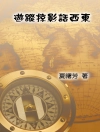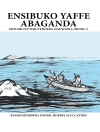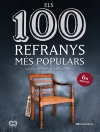Leonardo da Vinci—artist, inventor, and prototypical Renaissance man—is a perennial source of fascination because of his astonishing intellect and boundless curiosity about the natural and man-made world. During his life he created numerous works of art and kept voluminous notebooks that detailed his artistic and intellectual pursuits. The collection of writings and art in this magnificent book are drawn from his notebooks. The book organizes his wide range of interests into subjects such as human figures, light and shade, perspective and visual perception, anatomy, botany and landscape, geography, the physical sciences and astronomy, architecture, sculpture, and inventions. Nearly every piece of writing throughout the book is keyed to the piece of artwork it describes.
ABOUT THE AUTHOR:
Leonardo Da Vinci, Born on April 15, 1452, in Vinci, Italy, was concerned with the laws of science and nature, which greatly informed his work as a painter, sculptor, inventor and draftsmen. His ideas and body of work—which includes ‘Virgin of the Rocks, ‘ ‘The Last Supper, ‘ ‘Leda and the Swan’ and ‘Mona Lisa’—have influenced countless artists and made da Vinci a leading light of the Italian Renaissance. Quotes ‘Iron rusts from disuse, stagnant water loses its purity and in cold weather becomes frozen; even so does inaction sap the vigor of the mind.’ – Leonardo da Vinci Humble Beginnings Leonardo da Vinci was born on April 15, 1452, in Vinci, Italy. Born out of wedlock, the love child of a respected notary and a young peasant woman, he was raised by his father, and his stepmothers. ‘The Last Supper’ In 1482, Lorenzo de’ Medici, a man from a prominent Italian family, commissioned da Vinci to create a silver lyre and bring it to Ludovico il Moro, the Duke of Milan, as a gesture of peace. Da Vinci did so and then wrote Ludovico a letter describing how his engineering and artistic talents would be of great service to Ludovico’s court. His letter successfully endeared him to Ludovico, and from 1482 until 1499, Leonardo was commissioned to work on a great many projects.
It was during this time that da Vinci painted ‘The Last Supper.’ ‘Mona Lisa’ Da Vinci’s most well-known painting, and arguably the most famous painting in the world, the ‘Mona Lisa, ‘ was a privately commissioned work and was completed sometime between 1505 and 1507. Of the painting’s wide appeal, James Beck, an art historian at Columbia University, once explained, ‘It is the inherent spirituality of the human creature that Leonardo was able to ingenuine to the picture that raises the human figure to some kind of majesty.’ It’s been said that the Mona Lisa had jaundice, that she was a pregnant woman and that she wasn’t actually a woman at all, but a man in drag. Based on accounts from an early biographer, however, the ‘Mona Lisa’ is a picture of Lisa Gioconda, the real-life wife of a merchant, but that’s far from certain. For da Vinci, the ‘Mona Lisa’ was forever a work in progress, as it was his attempt at perfection. The painting was never delivered to its commissioner; da Vinci kept it with him until the end of his life. Today, the ‘Mona Lisa’ hangs in the Louvre Museum in Paris, France, secured behind bulletproof glass, and is regarded as a priceless national treasure.












